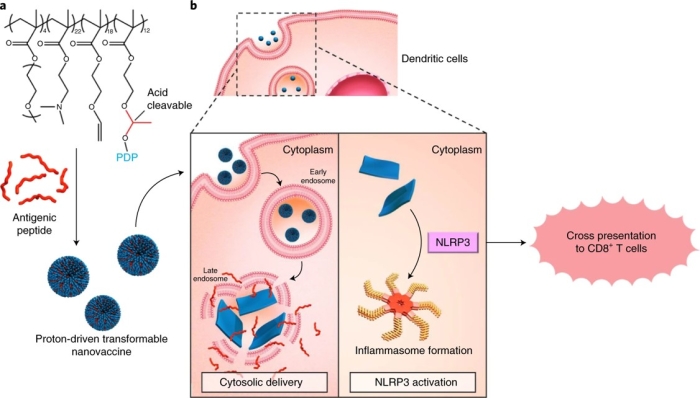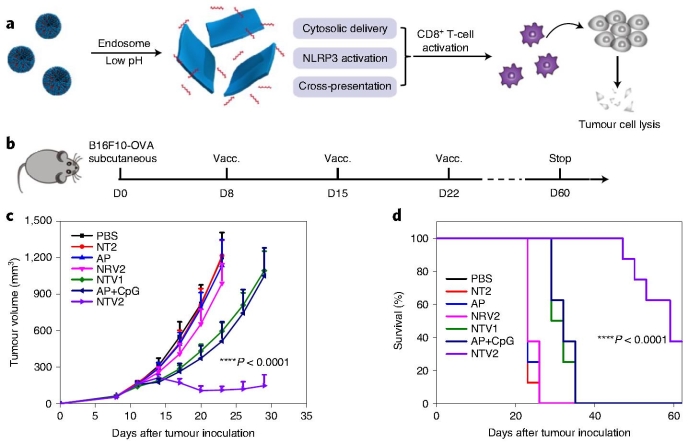A research team led by Prof. LIANG XingJie from the National Center for Nanoscience and Technology (NCNST) and Prof. LI Jinghong from Tsinghua University proposed a new strategy for constructing transformable nanocarriers to improve antigen delivery and cancer vaccination. This study was published in “Nature nanotechnology”.

Figure 1. Proton-driven transformable nanovaccine for cancer immunotherapy
Cancer immunotherapy has become a powerful strategy for treating cancers. Cancer vaccine is one of the most promising immunotherapy techniques. However, the inducing of potent antitumor immunity by cancer vaccines is always restricted by insufficient cytosolic delivery and inadequate innate immune activation.
Herein, scientists presented a proton-driven nanotransformer-based vaccine (NTV). The nanotransformer is an amphiphilic polymer-peptide conjugate, which can self-assemble into nanospheres and antigenic peptide (AP) can be encapsulated in the nanostructure with a double-emulsion method. These nanospheres are stable at physiological pH value (pH 7.4). However, in the acidic endo/lysosomal environment (~pH 5.6), NTV undergoes a dramatic morphological change from nanospheres (~100 nm in diameter) into nanosheets (several micrometers in length or width). This morphological change leads to efficient endosomal membrane disruption by mechanical forces and allows effective cytosolic delivery of antigenic peptide.
Moreover, the re-assembled nanosheets also activates the NLRP3 (Nod-like receptor family, pyrin domain containing 3) inflammasome pathway. This feature contributes to antigen cross-presentation to CD8+ T cells. NTV effectively inhibits tumour growth in B16F10-OVA and human papilloma virus-E6/E7 tumour models. Additionally, combining tumor neoantigen-loaded NTV with anti-PD-L1 antibodies results in about 50% complete tumour regression and significantly prolonged mice survival in a melanoma model.
The proton-driven transformable nanovaccine offers a robust and safe strategy for cancer immunotherapy.

Figure 2. Transformable nanovaccine inhibits tumour growth and prolongs survival in a melanoma model
This work was supported by the National Natural Science Foundation of China Key Project, National Key Research & Development Program of China and the Strategic Priority Research Program of the Chinese Academy of Sciences.
Contact:
LIANG XingJie
National Center for Nanoscience and Technology (NCNST)
E-mail: liangxj@nanoctr.cn




